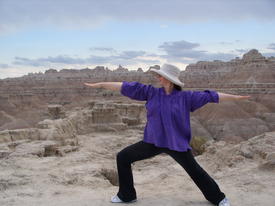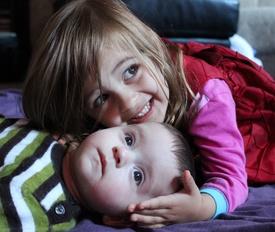We are pleased to announce that on March 4, 2025, an updated Rich Text Editor will be introduced in the MyFitnessPal Community. To learn more about the upcoming changes, please click here. We look forward to sharing this new feature with you!
Starvation Mode: a very popular topic

czarina127
Posts: 23 Member
So this may have been said else where but I did not see it. How do you know when you are in starvation mode? Is it you just feel bad? Or hungry? or slow? Or do you just not know and you have to stay with in your calories?
Thanks,
Amanda
Thanks,
Amanda
0
Replies
-
So this may have been said else where but I did not see it. How do you know when you are in starvation mode? Is it you just feel bad? Or hungry? or slow? Or do you just not know and you have to stay with in your calories?
Thanks,
Amanda0 -
I found this article...maybe it will help. :flowerforyou:
Dieting and Metabolism
By WLR Dietitian Juliette Kellow BSc RDWhen we're bombarded with images of gorgeous celebrities who seem to lose weight in the time it takes us to eat a Danish pastry, it's no wonder we're often tempted to cut our already low calorie intakes in an effort to shift an extra pound or two each week.
But surprisingly, rather than helping us to reach our target weight more quickly, severely restricting calories actually prevents our bodies from burning unwanted fat stores effectively - and unfortunately, this means that weight loss slows down.
Why does a very low calorie intake slow down weight loss?
Quite simply, your body goes into 'starvation mode'. This mechanism, which is thought to have evolved as a defence against starvation, means the body becomes super efficient at making the most of the calories it does get from food and drink. The main way it does this is to protect its fat stores and instead use lean tissue or muscle to provide it with some of the calories it needs to keep functioning. This directly leads to a loss of muscle, which in turn lowers metabolic rate so that the body needs fewer calories to keep ticking over and weight loss slows down. Of course, this is the perfect solution if you're in a famine situation. But if you're trying to lose weight, it's going to do little to help you shift those unwanted pounds.
So how many calories should I have to prevent starvation mode?
Unfortunately, there's no single answer to this question. As everyone's metabolism varies in the first place, so too will the point when the body starts to use muscle to provide it with calories in a 'famine-type' situation. That's why WLR works out suitable calorie intakes for each member on an individual basis and never lets you opt to lose more than 2lb a week, which would require a severely restricted calorie intake. In other words, if you stick to the calorie intake recommended by WLR, you can be sure your body won't go into starvation mode.
As a general rule though, most nutrition experts recommend never going below 1,000-1,200 calories a day if you're dieting on your own. It's also worth bearing in mind that the body doesn't suddenly 'enter' and 'leave' starvation mode, like crossing the border from Devon into Cornwall. It's a gradual process - so you don't need to panic if you do go below your calorie intake very occasionally.
What's the link between muscle and metabolism?
The metabolic rate - the rate at which the body burns calories - is partly determined by the amount of muscle we have. In general, the more muscle we have, the higher our metabolic rate; the less muscle we have, the lower our metabolic rate. This explains why men, who have a high proportion of muscle, have a faster metabolism than women, and why a 20-year-old has a higher metabolism than a 70-year-old - again, they have more muscle.
Ultimately, muscle burns a lot more calories than fat so when we lose muscle, our metabolic rate drops and we burn fewer calories. In fact, research shows that the body loses a proportionately high amount of muscle with a very low calorie intake and this may considerably suppress metabolism by up to 45 percent.
This explains why it's crucial to do as much as you can to protect your metabolic rate, especially when you're dieting. And this means dieting sensibly with a suitable, rather than a very low calorie intake so that you lose fat rather than muscle.
Is there anything else I can do to stop losing muscle when I'm dieting?
As well as making sure you have sufficient calories to burn fat rather than muscle, it's also possible to build muscle, which in turn boosts metabolism. And the way to do this is, of course, to increase the amount of exercise you do. While aerobic activities such as jogging, swimming, fast walking and aerobic classes help to tone muscle and burn fat, strength or resistance training in particular will increase the amount of muscle you have in your body. And this is good news because for every extra 1lb of muscle you have, your body uses around an extra 50 calories a day! This means an extra 10lb of muscle will burn roughly an extra 500 calories a day without you doing anything - and that's a sufficient amount to lose 1lb in a week.
But doesn't your metabolism drop when you lose weight anyway?
Yes, your metabolic rate naturally slows down a little when you lose weight, but this isn't automatically because you've lost muscle. It's because when your body has less weight to carry around, it needs fewer calories. This means if you weighed 13st to start with and now weigh 9st, you need fewer calories to maintain your new weight than you did when you were heavier. Simply put, there's 4st less of you to carry up and down the stairs, into the bath, around the supermarket and to the bus stop - and because your body doesn't have to work as hard as it did in the past, it can survive on fewer calories! This is why you should regularly update your Goals and Results - as your weight drops, Weight Loss Resources will recalculate how many calories you need to keep losing weight at your chosen rate.
Will yo-yo dieting have damaged my metabolism permanently?
Fortunately not! The idea that yo-yo dieting permanently lowers your metabolism has been relegated to the archives. However, if you've frequently crash dieted and severely restricted your calorie intake without exercising, it's likely you'll have a lot less muscle now compared with the very first time you dieted. As a consequence, it's likely your metabolism will also be lower so that you need fewer calories to maintain your current weight. This is because when you follow a very low calorie diet, you lose muscle as well as fat (see above). But when the weight goes back on, you usually only regain fat. This means, your metabolic rate is likely to have dropped a little every time you've dieted, making it slightly harder each time for you to lose weight. The good news is you can increase the amount of muscle you have by increasing the amount of exercise you do. This in turn will rev up your metabolism so that you can lose weight one final time on a slightly higher calorie intake than you've perhaps been used to.
For more on how to boost your metabolism, see my related article, 8 Ways to Speed Up Your Metabolism0 -
I saw a nutrititionist and she summed up starvation mode very tidily for me.
If you're eating a small amount of calories, and are no longer hungry, you're in starvation mode. I got so that I was "grossed out" by food. I was netting about 700 calories a day after exercise for at least six months.
And, for all you doubters out there, I had stopped losing weight. 0
0 -
7 ways to speed up metabolism 2 years ago
Seven Quick Ways To Speed Up Your Metabolism and Burn
Fat Faster
by Nick Nilsson
The speed of your metabolism is the real key to burning fat quickly and efficiently. Here are seven easy tips for boosting your metabolic rate.Your metabolism or metabolic rate can determine exactly how quickly you gain or lose fat. Here are some quick tips you can put to use immediately to help crank up your metabolism and increase your fat burning.
1. Eat Breakfast
It’s no myth that breakfast is the most important meal of
the day. If you skip breakfast thinking you are saving
calories or time, consider this…
Your body has been in a fasting state for 8 hours or more.
When you wake up and don’t give it any food, its natural
reaction is self-defense. It thinks “famine” and
automatically slows your metabolism to a crawl to conserve
calories. Not only does everything you eat for the rest
of the day have a far greater chance of being stored as
fat, your chances of burning any fat off that day are low.
And here’s the whammy… you’re going to get really hungry
later and will probably want to eat something that’s not so
good for you. With your now-slower metabolism (because you
skipped breakfast), you’re going to store a lot more of
that “not-so-great” meal than usual.
2. Eat Frequently
Besides skipping breakfast, the next biggest metabolism-
killer is long waits between meals. Every time you eat
something, your metabolism ramps up to process the food.
The more frequently you eat, the more frequently your
metabolism will get a boost.
The real key, however, is to be sure you’re eating smaller
meals (eating 5 big meals instead of 3 big meals isn’t good
for losing fat!). Try to eat 5 or more times per day, even
if it’s just healthy snacks between meals.
3. Exercise With Intensity
Your metabolic rate is directly related to the intensity of
the exercise you perform. Walking will burn calories while
you’re doing it and give your metabolism a small boost for
a little while after but it doesn’t compare to high-
intensity interval training. That type of training can
boost your metabolism for a full 24 hours or more after.
Even if you can’t handle high-intensity training, you can
always find ways to make the easier exercises such as
walking more intense, e.g. walk faster, walk up hills, wear
a weighted back-pack, etc.
4. Train With Weights
Weight training builds muscle and muscle is a huge factor
in determining your metabolic rate. Muscle tissue is very
metabolically active. Your body burns a lot of calories
just to maintain it.
Weight training gives your metabolism a triple-shot. Not
only do you burn calories during the exercise, you also
increase your metabolic rate long after the exercise
(provided the training you are doing is intense). Add to
that the extra muscle you build from the training and you
can see how effective weights can be for boosting your
metabolism.
5. Eat More Protein
Of the three major macronutrients (protein, carbohydrates
and fats), protein requires the most energy to digest.
Protein is also less likely to be stored as fat because of
this. Protein will also help you to build up your muscle.
I don’t recommend that you overload on protein, however,
focusing on getting plenty of good-quality protein from a
variety of sources (e.g. lean meats, chicken, fish, eggs,
soy, etc.) can help keep your metabolic rate high.
6. Take Your Vitamins
Your metabolic rate basically boils down to chemical
reactions in your body. Vitamins and minerals (and water)
are important parts of these chemical reactions. If you
don’t have enough of these components available for your
body to use when it needs them, your body will have to
limit itself to what you’ve got.
Think of your metabolism as a car assembly line. You can’t
build a complete car until you have all the parts available.
If, for example, you only have enough doors available to
build 100 cars but you have 200 doorless cars on the line,
you’re missing out on a lot of potential production.
By taking a multivitamin on a regular basis, you will not
only support your metabolism but your health as well.
7. Reduce Your Fat Intake
Fatty foods take longer for your body to digest and they
leave you feeling fuller longer. While not being hungry
is certainly fine when trying to lose fat, eating meals
that encourage you to wait longer periods between eating
can slow your metabolism.
This goes back to the point about eating frequently. If
you eat fatty foods for breakfast, you may not want to eat
anything again until lunch, which could be 5 or more hours
away. Ideally, you should eat approximately every 3 hours.
If you’re looking to give your metabolism a boost, give
these tips a try. A faster metabolic rate can help you
tremendously with fat loss.
http://www.trulyhuge.com/news/tips63ic.htm0 -
I saw a nutrititionist and she summed up starvation mode very tidily for me.
If you're eating a small amount of calories, and are no longer hungry, you're in starvation mode. I got so that I was "grossed out" by food. I was netting about 700 calories a day after exercise for at least six months.
And, for all you doubters out there, I had stopped losing weight.
I definitely agree with this. Also anyone who has suffered with anorexia will tell you that they didn't FEEL hungry. Eventually, when you deprive your body of food, it stops asking for it. If you eat so little that you are at risk, over a long period of time (this isn't going to happen after a few days or weeks, we're talking months here), you will first lose weight pretty quickly. it will slow and slow and slow until you're not losing anything at all, which will usually trigger the person to eat even less or exercise more or both, which will only make things worse. Even more difficult is when you realize you're eating too little, and up your intake, you're body with hoard those calories, saving them for the next bout of starvation sooooo, you'll gain weight, which will potentially trigger yet another period of too-low calories. And the cycle continues. This is why, when people say "I only eat 1200 a day and I don't eat my exercise cals and I'm still losing so it's fine" it's really not fine. YES you're losing weight but eventually it will stop, and you'll be stuck in this mess of a cycle.
I've been there, high school was a major struggle for me because of it. Starvation mode, or whatever you'd like to call it, does exist.0 -
Good articles Linda.
In a nut shell. Your body wants to preserve its self. Eating low calories is depriving your body and is harmfull to it. So your body will actually slow down the rate that it functions (metabolism) in order of self preservation. Now eating less a day or two won't cause this, but if you do it for a prolonged time, your body assumes that there isn't enough food in the world and times are hard and that it will never have enough food. That's when starvation mode kicks in.
The same is really true with even eating reduced calories all the time. Your body thinks that that is all the more calories your ever going to get so it slows down to run on that number of calories. That's why calorie cycling is good (also called Zig zag dieting) or having a splurge day once a week also helps.0 -
BTw i love your name you are absolutely right it is working for me to have a splurge day last week was proof to me..:flowerforyou:Good articles Linda.
In a nut shell. Your body wants to preserve its self. Eating low calories is depriving your body and is harmfull to it. So your body will actually slow down the rate that it functions (metabolism) in order of self preservation. Now eating less a day or two won't cause this, but if you do it for a prolonged time, your body assumes that there isn't enough food in the world and times are hard and that it will never have enough food. That's when starvation mode kicks in.
The same is really true with even eating reduced calories all the time. Your body thinks that that is all the more calories your ever going to get so it slows down to run on that number of calories. That's why calorie cycling is good (also called Zig zag dieting) or having a splurge day once a week also helps.0 -
BTw i love your name you are absolutely right it is working for me to have a splurge day last week was proof to me..:flowerforyou:
thanks, I've been called that all my life.0 -
I want to thank you guys so very much for your supportive comments about this topic. If any of you had seen what I was put through yesterday with this topic you would understand why there were tears in my eyes when I read your comments. I only want to help.
I went for 2 years only eating every other day...it has taken me a very long time to bring my body back from that disaster. I know first hand from thorough research and personal involvement every step of when your body feels starved. And yes, I can tell you, your body gets so used to trying to save itself that you begin to not miss food. Its sad really.
Thank you so very much.0 -
I saw a nutrititionist and she summed up starvation mode very tidily for me.
If you're eating a small amount of calories, and are no longer hungry, you're in starvation mode. I got so that I was "grossed out" by food. I was netting about 700 calories a day after exercise for at least six months.
And, for all you doubters out there, I had stopped losing weight.
!!!!!!! i just went through pretty much the same thing...kinda...sorta...
when i felt bad this past year, i got to a point where i didn't eat much at all for the day but stayed so sedentary. i probably ate 1000 cals a day or less, and i was at least 170 during that time. i actually GAINED weight! and i felt like a total sloth!! also, when i ate my first meal in the morning, it took everything in my power to actually get it down.
so glad that's over...
EAT GOOD CLEAN FOOD, PEOPLE! AND EAT IT OFTEN! WE NEED FUEL TO BURN FAT AND MAKE MUSCLE!0 -
I think it is very important topic especially for those who want to lose weight fast (without doctor supervision). It is not fun when your body starts to eat itself. I know a lady who died last year because her body started eating away at her heart muscles. I myself had to crawl up stairs b/c I didn't have enough strength to walk up them. And it is easy for people to say I will never get to that point because you never know when that point will come for your body.
It is great that you care enough to share your story, Firewalking.
Thank you.0 -
I want to thank you guys so very much for your supportive comments about this topic. If any of you had seen what I was put through yesterday with this topic you would understand why there were tears in my eyes when I read your comments. I only want to help.
I went for 2 years only eating every other day...it has taken me a very long time to bring my body back from that disaster. I know first hand from thorough research and personal involvement every step of when your body feels starved. And yes, I can tell you, your body gets so used to trying to save itself that you begin to not miss food. Its sad really.
Thank you so very much.
No one was putting you through anything the other day.
You took it too personally when Dave198 stated that it takes more than a few hours for your body to go into starvation mode and that was an incorrect statement to say.
It takes much longer than 8 hours for your body to go into starvation mode.............if that were the case, each person in this world would be in starvation mode.
Everyone here that has posted and yourself has stated that they were consuming very little calorie amounts for an extended time period (weeks and / or months or longer)...........
It is an extended time where the human body goes with very low caloric intake.
I am very well versed with this too, I gained over 140 pounds consuming less than 1000 calories a day when my Dr put me on a very low calorie diet...........he did my body much more harm than good.0 -
Fortunately, it's not like we have to work together or even interact. The conversation had nothing to do with you - so that makes this entire conversation ridiculous and totally not worth my time. I will not check this thread again. I am not interested in your opinion on the matter.0
-
Fortunately, it's not like we have to work together or even interact. The conversation had nothing to do with you - so that makes this entire conversation ridiculous and totally not worth my time. I will not check this thread again. I am not interested in your opinion on the matter.
I am sorry that you feel that way.
This is a public forum and anyone can comment their knowledge and experiences in any topic on a public bulletin board.
That is the beauty of the internet, topics can be discussed and debated. We should, as adults, be able to correct or add to each other's information when the information is incomplete or incorrect.
Things should not be taken so personally on a public bulletin board.0
This discussion has been closed.
Categories
- All Categories
- 1.4M Health, Wellness and Goals
- 394.3K Introduce Yourself
- 44K Getting Started
- 260.5K Health and Weight Loss
- 176.1K Food and Nutrition
- 47.5K Recipes
- 232.7K Fitness and Exercise
- 442 Sleep, Mindfulness and Overall Wellness
- 6.5K Goal: Maintaining Weight
- 8.6K Goal: Gaining Weight and Body Building
- 153.1K Motivation and Support
- 8.1K Challenges
- 1.3K Debate Club
- 96.4K Chit-Chat
- 2.5K Fun and Games
- 4K MyFitnessPal Information
- 16 News and Announcements
- 1.2K Feature Suggestions and Ideas
- 2.7K MyFitnessPal Tech Support Questions







